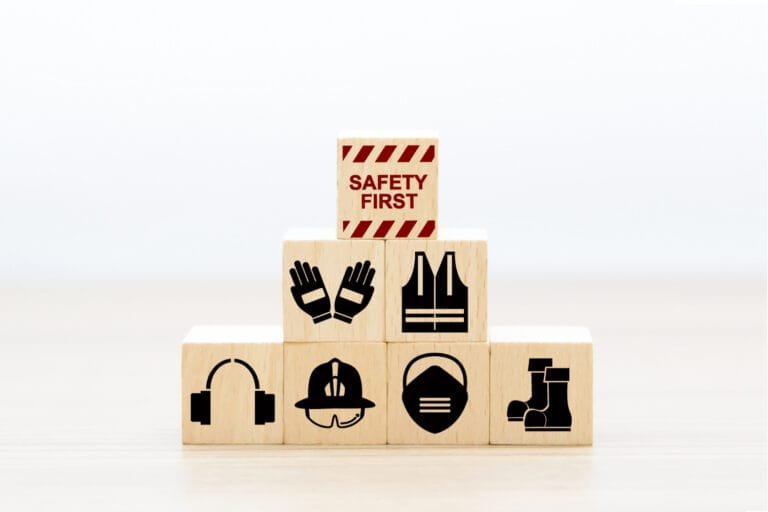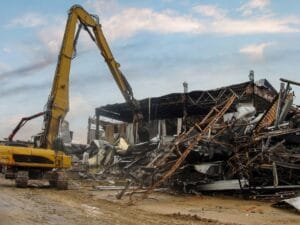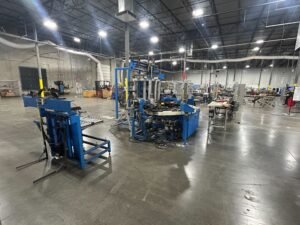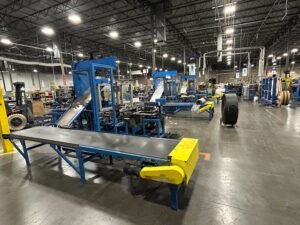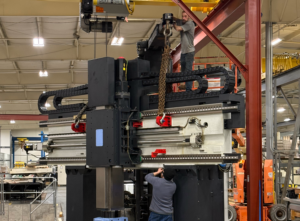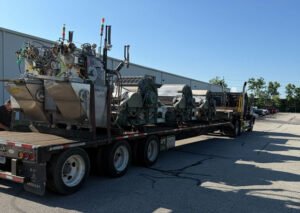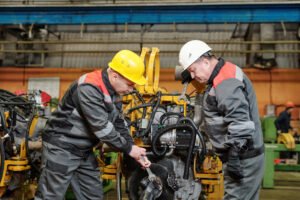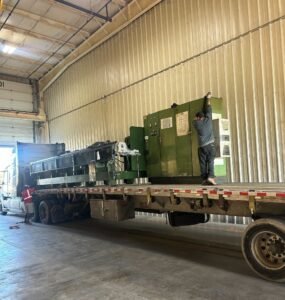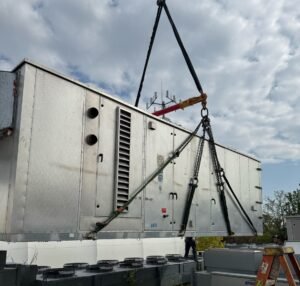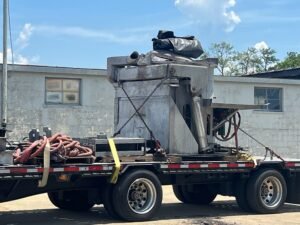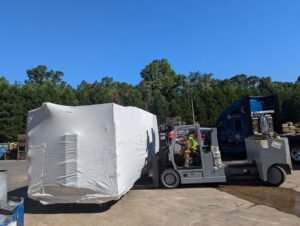Choosing the right rigging company for your heavy equipment moving and lifting needs is a crucial decision. A reliable rigging company should have proven expertise, experienced personnel, and, most importantly, the necessary safety certifications. These certifications are not just symbols of quality; they are evidence of a company’s commitment to maintaining high standards, ensuring that their team members are well-trained, and that they follow industry best practices to prevent accidents and mishaps. In this article, we’ll outline the most critical certifications you should verify before selecting a rigging company to ensure your project runs smoothly and safely.
OSHA Certification: Ensuring Rigging Safety Standards Are Met
The Occupational Safety and Health Administration (OSHA) sets and enforces safety standards to ensure a safe workplace for all industries, including construction and rigging. OSHA certification is foundational for any rigging company, as it demonstrates the company’s adherence to stringent safety regulations.
OSHA 10 and OSHA 30 Certifications for Workers and Supervisors
For rigging operations, both the OSHA 10 and OSHA 30 certifications are critical. OSHA 10-Hour Construction Training is a basic safety course that covers essential safety practices for workers on-site, including rigging team members. It emphasizes key hazard areas, such as falling, lifting, and handling of materials. OSHA 30-Hour Construction Training, on the other hand, is designed for supervisors and managers, covering more comprehensive safety aspects, risk management, and the responsibilities of overseeing safety on the job site.
For a rigging company, ensuring that all team members have an OSHA 10 certification and that supervisors hold an OSHA 30 certification is a sign of rigorous training. Both certifications highlight the company’s commitment to reducing accidents and providing a safe working environment.
OSHA-Compliant Rigging Plans and Procedures
When handling heavy equipment, rigging companies must create detailed rigging plans that comply with OSHA regulations. These plans cover load weight calculations, lifting techniques, and contingency strategies. A company with an OSHA-compliant rigging plan shows a proactive approach to identifying and mitigating risks during the lifting and moving process. When selecting a rigging company, ask for proof of their OSHA-compliant procedures, as this ensures they follow standards that prioritize worker safety.
NCCCO Certification: Validating Qualified Crane and Rigging Operators
The National Commission for the Certification of Crane Operators (NCCCO) is one of the most respected certifying bodies in the rigging and crane operation industry. This certification serves as a benchmark for competence and safety, as it tests operators on critical skills and knowledge related to crane and rigging operations.
NCCCO Certified Crane Operators
NCCCO certification verifies that crane operators possess the required skills to operate different types of cranes safely and effectively. The certification process includes written and practical examinations on topics like crane setup, load dynamics, hand signals, and safe lifting techniques. A company that employs NCCCO-certified operators reassures clients that their equipment is in the hands of highly skilled personnel who understand the complexities of crane and rigging operations.
NCCCO Rigger Level I and Level II Certifications
NCCCO offers Rigger Level I and Level II certifications, which ensure that a rigger has undergone rigorous testing to manage loads accurately and with safety. Rigger Level I certification focuses on basic rigging practices, while Level II certification involves advanced rigging tasks, including complex load balancing and equipment relocation in tight spaces. Both certifications are vital for verifying a rigging company’s competency and commitment to safety. When a company’s riggers are NCCCO-certified, it provides confidence that they will follow safe rigging protocols, ensuring that heavy equipment is moved without compromising safety.
Signalperson Certification
In addition to the crane and rigger certifications, NCCCO also certifies signalpersons. These individuals are crucial on the rigging site, as they provide communication between the crane operator and rigging team, ensuring precise and coordinated movements. Signalperson certification covers knowledge of standard hand and voice signals, and NCCCO-certified signalpersons demonstrate effective communication skills, which is essential for avoiding misunderstandings that could lead to accidents.
ISO 9001 Certification: Guaranteeing Quality Management in Rigging Operations
ISO 9001 is an internationally recognized standard for quality management systems. A rigging company that holds ISO 9001 certification has shown its commitment to maintaining high standards in all areas of its operation, from personnel training to customer service and compliance with safety regulations.
Benefits of ISO 9001 Certification in Rigging Companies
ISO 9001 certification is a strong indicator of a company’s dedication to quality and consistency. This certification requires the company to implement processes that focus on customer satisfaction, effective project management, and continuous improvement. For clients, ISO 9001 certification serves as an assurance that the rigging company follows an organized and systematic approach to all projects, whether large-scale equipment moves or complex lifts.
ISO 9001-certified companies are typically required to undergo annual audits to retain their certification, ensuring ongoing compliance with the latest safety and quality standards. A company with ISO 9001 certification prioritizes risk assessment and process improvement, two crucial factors that contribute to safe and efficient rigging services.
ISO 45001 for Occupational Health and Safety Management
While ISO 9001 focuses on quality management, ISO 45001 addresses occupational health and safety. ISO 45001-certified rigging companies prioritize creating a safe workplace, implementing measures to control hazards, and minimizing risks to their team members. This certification reflects a company’s commitment to maintaining high safety standards, which can reduce the likelihood of accidents or injuries during equipment moving operations.
Choosing a company with ISO 45001 certification means you’re working with a team that goes beyond standard safety practices to implement comprehensive health and safety management systems. When selecting a rigging company, the ISO 45001 certification can provide peace of mind that safety is central to every part of their operation.
ISO 14001 for Environmental Management
ISO 14001 certification signifies a rigging company’s commitment to environmental responsibility. Moving and rigging heavy equipment can have a significant environmental impact, particularly if emissions or waste materials are not properly managed. Companies with ISO 14001 certification implement environmentally conscious practices, such as minimizing fuel consumption, reducing emissions, and handling waste responsibly. Selecting an ISO 14001-certified rigging company allows clients to reduce their environmental footprint while ensuring equipment is moved in a sustainable manner.
Conclusion
When selecting a rigging company for your heavy equipment moving needs, verifying their certifications is essential for ensuring a safe, compliant, and reliable service. Key certifications, including OSHA compliance, NCCCO certification, and ISO standards, provide a solid foundation for assessing a company’s commitment to safety and quality. By choosing a rigging company with these certifications, you can be confident that they prioritize the safety of their team, their equipment, and your project’s success.
Alltracon as a Trusted Service Provider for Heavy Equipment Moving
Alltracon specializes in providing reliable and safe heavy equipment moving services, with a focus on meeting the highest industry standards. Their team’s extensive experience, coupled with essential safety certifications, makes Alltracon a trusted partner for complex equipment moves, ensuring each project is handled with professionalism and precision.
